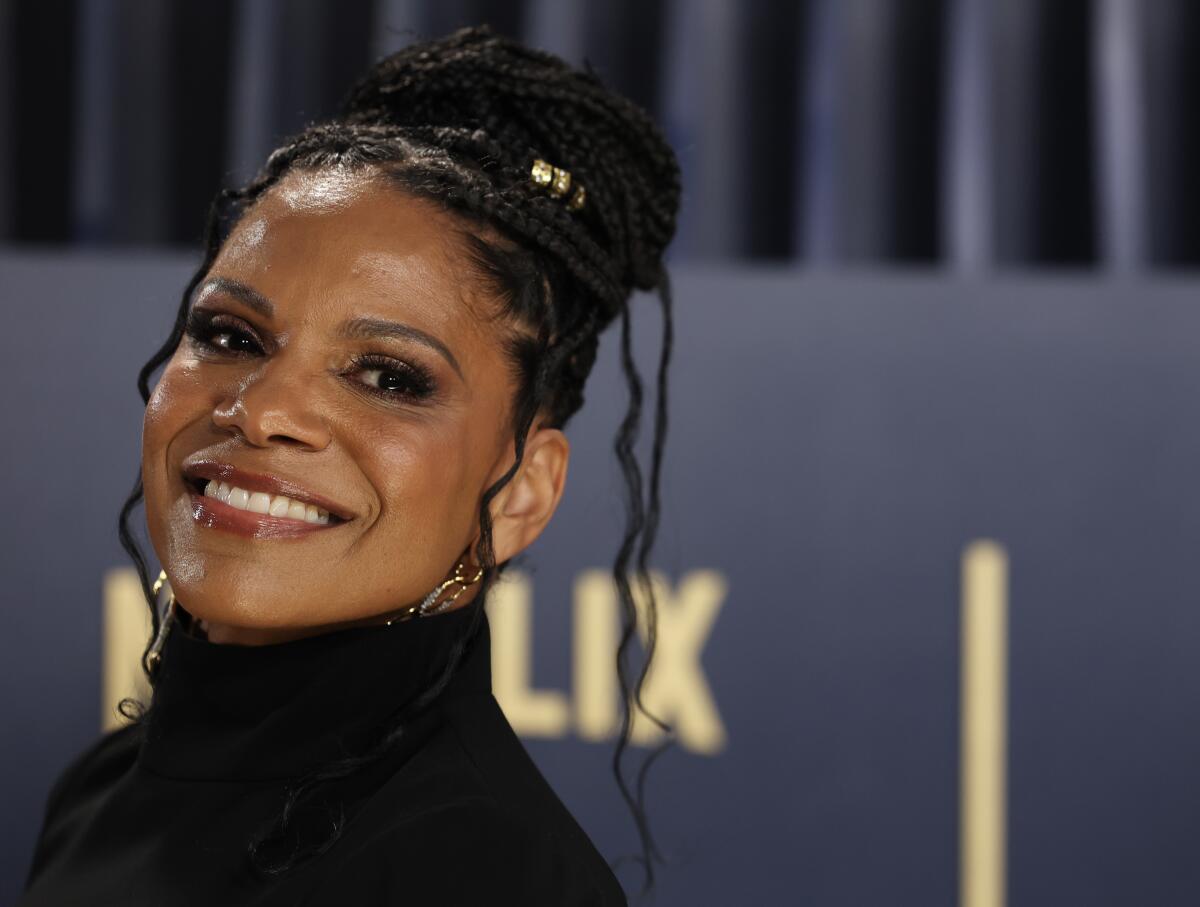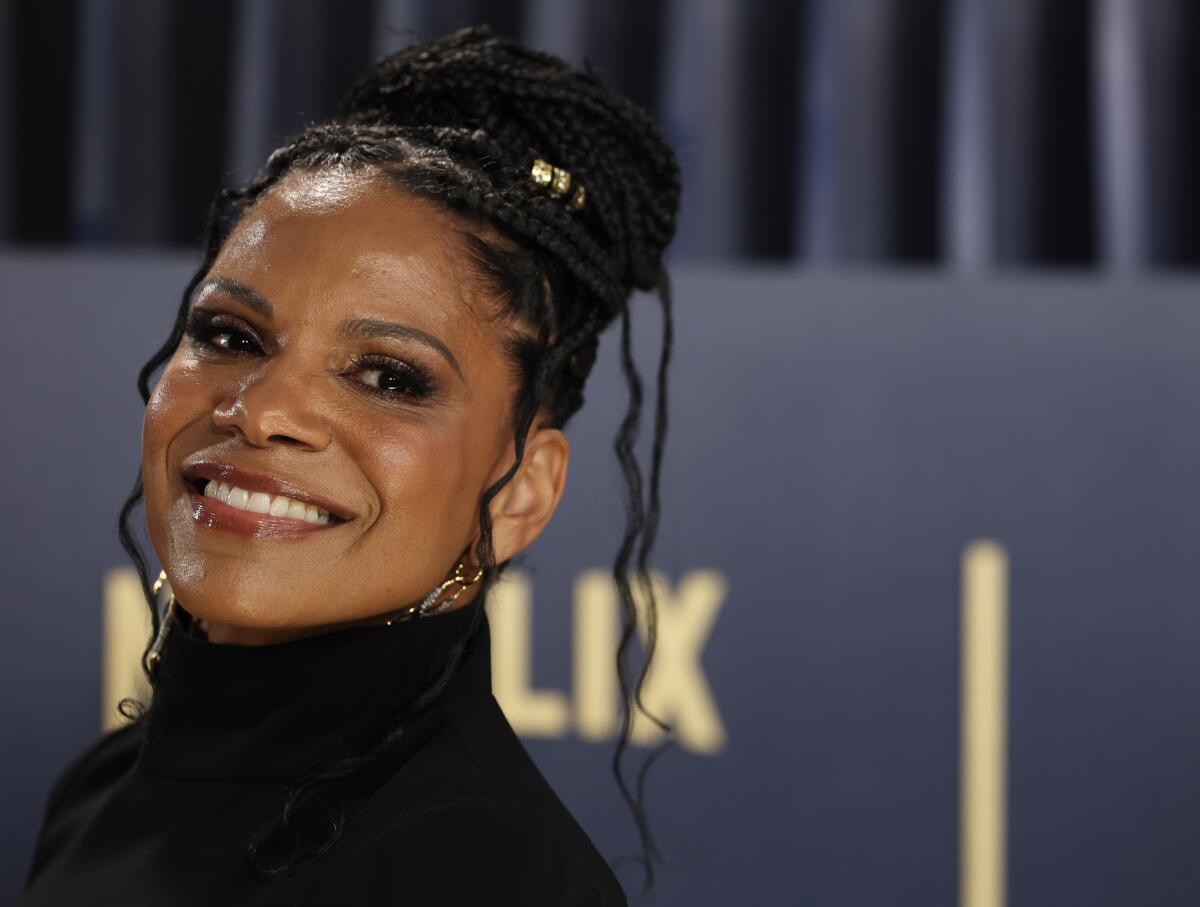Twenty-five years ago, on a warm summer night in Los Angeles, Broadway stars Patti LuPone and Audra McDonald closed a show at the Hollywood Bowl with back-to-back encores of “Get Happy”/ “Happy Days Are Here Again.”
Today, those happy days appear to be over for the two Tony Award winners.
In a May 26 interview with the New Yorker, LuPone ignited a firestorm when she referred to McDonald as “not a friend” and refused to comment on McDonald’s celebrated performance in “Gypsy.” (McDonald is nominated for a 2025 Tony Award in the category best actress in a leading role in a musical — its her 11th nomination.) LuPone also referred to Tony winner Kecia Lewis, who, like McDonald, is Black, as a “bitch.”
Speaking with Gayle King in a “CBS Mornings” clip, McDonald sounded surprised by LuPone’s comments. “If there’s a rift between us, I don’t know what it is,” she said. “That’s something that you’d have to ask Patti about. I haven’t seen her in about 11 years, just because I’ve been busy, just with life and stuff. I don’t know what rift she’s talking about. You’d have to ask her.” (A full interview is set to air this week, according to a “CBS Mornings” Instagram post.)

Broadway star Audra McDonald arrives on the red carpet at the 30th Screen Actors Guild Awards in Los Angeles in 2024.
(Brian van der Brug / Los Angeles Times)
Following public backlash, however, LuPone did something she rarely does. The outspoken diva apologized.
But that was not without some stage direction.
In an open letter from her colleagues in the theater community dated May 30, more than 500 actors, including Tony-winning actors Wendell Pierce, James Monroe Iglehart and Maleah Joi Moon, called LuPone’s language “racialized disrespect,” “bullying” and “harassment.” They asked the American Theatre Wing and Broadway League to discourage those who disparage fellow artists, including LuPone, from attending industry events “including the Tony Awards, fundraisers, and public programs.” (The 2025 Tony Awards are scheduled for June 8 in New York, and will air on CBS and stream on Paramount+.)
On Saturday, LuPone responded to the criticism in a statement on her Instagram account: “I am deeply sorry for the words I used during The New Yorker interview, particularly about Kecia Lewis, which were demeaning and disrespectful. I regret my flippant and emotional responses during this interview, which were inappropriate, and I am devastated that my behavior has offended others …” She went on to write that she hopes to speak to McDonald and Lewis in person.
LuPone is well-versed in calling people out herself, particularly audience members who text during her theater performances. Last year, she even complained about noise from the Alicia Keys musical “Hell’s Kitchen” when she was performing in “The Roommate” with Mia Farrow next door.
After LuPone asked the theater owner to fix the sound because she found it to be too loud, Lewis took offense and posted a video on Instagram, describing LuPone’s actions as “bullying,” “racially microaggressive” and “rude and rooted in privilege.” She also noted that “calling a Black show loud dismisses it.”
Last year, Lewis won a Grammy for best musical theater album and a Tony in the category best performance by an actress in a featured role in a musical for “Hell’s Kitchen.”
Although flippant, LuPone’s words only serve to hurt everyone during a turbulent time for the arts in America, the open letter from the theater community said. “Our industry is under threat. The arts are being defunded, theater programs are disappearing, and artists are being pushed to the margins. We need each other now more than ever. We need community. We need leadership. And we need accountability.”
Humbled, LuPone agreed.
“I wholeheartedly agree with everything that was written in the open letter shared yesterday,” she wrote. “From middle school drama clubs to professional stages, theatre has always been about lifting each other up and welcoming those who feel they don’t belong anywhere else. I made a mistake, and I take full responsibility for it, and I am committed to making this right. Our entire theater community deserves better.”
